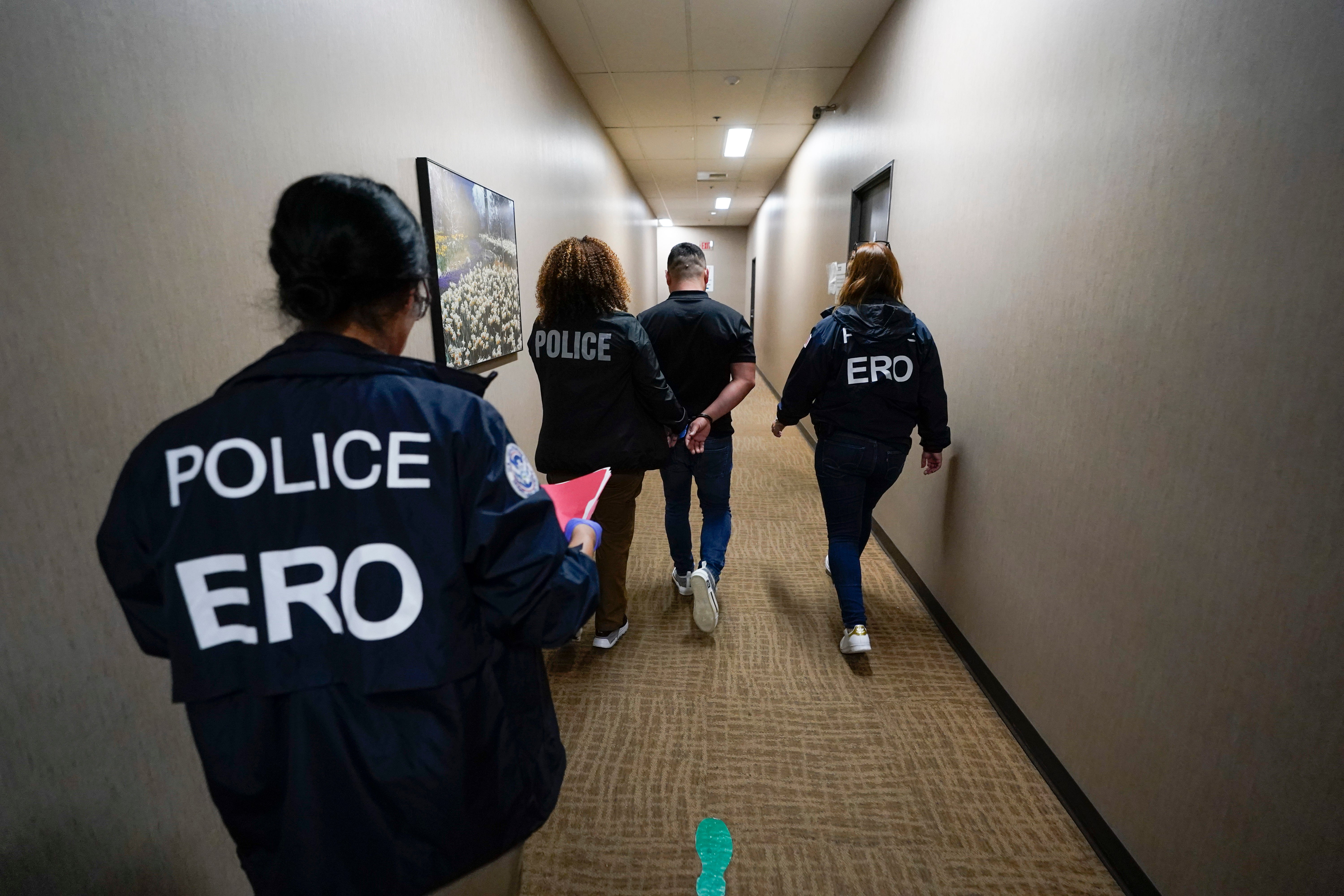As soon as its first day in office, the incoming Trump administration is reportedly planning on rescinding a 2011 immigration policy limiting deportation arrests in sensitive locations like schools, churches, and hospitals.
Instead, the administration plans to let Immigration and Customs Enforcement (ICE) agents make arrests in these locations if they’re related to national security concerns, the arrest of a dangerous felon, or risks of imminent danger or the compromising of a criminal investigation, according to NBC News, which first reported on the alleged plan, citing three anonymous sources familiar with the new administration.
The new brief would also apply to arrests made in other locations like colleges and at events like protests, which could hamper the kind of large-scale pro-immigration protests seen during the first Trump administration.
Since 2011, ICE has limited arrests in these locations without approval from more senior officials, though the previous Trump administration carried out at least five so-called exigent ICE arrests between October 2018 and 2020.
“Immigration enforcement has always required a balance. In the past, presidents of both parties have recognized that merely because it may be lawful to make arrests at hospitals and schools doesn’t mean it’s humane or wise public policy,” Lee Gelernt, an attorney with the American Civil Liberties Union, told the outlet.
The Independent has contacted the Trump transition team for comment.

The incoming administration has vowed to pursue the largest mass deportation campaign in U.S. history and end core parts of U.S. immigration policy like birthright citizenship, while invoking emergency law to use the military to assist immigration arrests.
The threats have prompted so-called “sanctuary” jurisdictions to emphasize that they won’t deploy local government resources to assist in the federal immigration arrests.
“The last thing we want is people who are part of our economy, part of our school system, part of our community and the fabric of our city to feel that all of a sudden they have to retreat into the shadows,” Boston Mayor Michelle Wu said last month in an interview with WCVB.
During the first Trump administration, some undocumented migrants took shelter in religious facilities based on the 2011 policy.
Aura Hernandez, a mother from Guatemala who arrived in the U.S. in 2005 fleeing violence and domestic abuse, lived inside a Unitarian church in Manhattan, where her U.S. citizen children visited her.
“He always tells me he doesn’t want to leave on Sunday nights,” she told The Independent at the time through a translator of visits from her son. “He doesn’t want to leave because he’s afraid the police will come to the church and take me away.”







